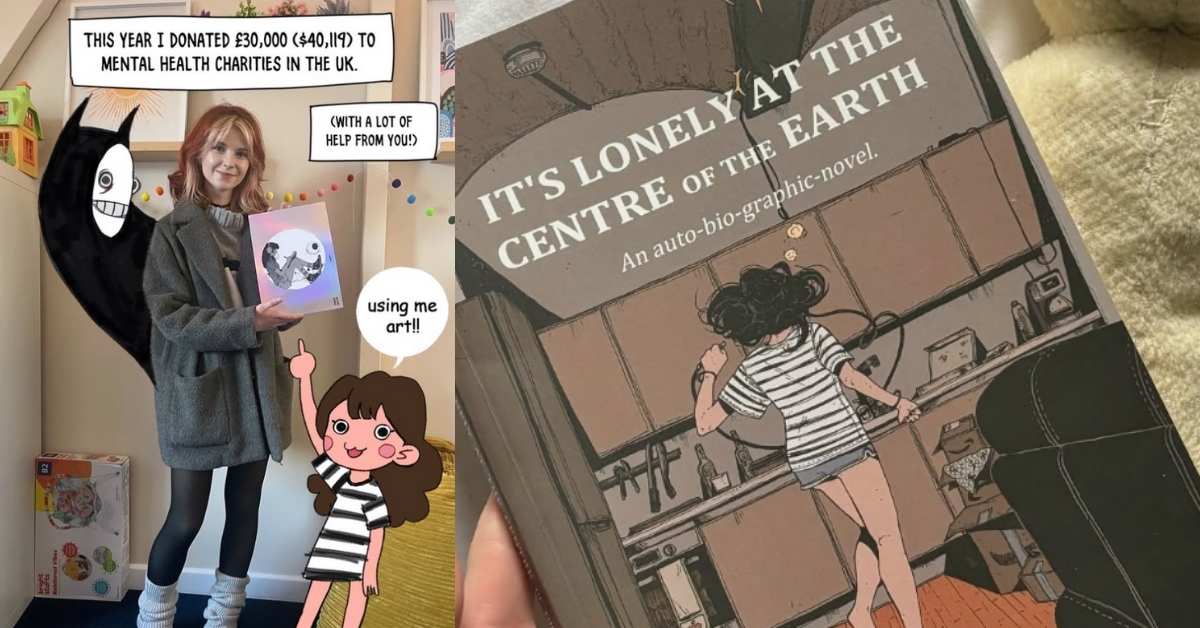It’s estimated that 48% of global workers experience burnout — and that type of stress and mental exhaustion is not something that can be cured with a weeklong vacation or sporadic “self-care days.”
To actually reduce burnout, Simone Stolzoff believes that people need to shift the way they think about work completely.
“If we want to actually change our relationship with work, we have to go deeper,” Stolzoff explained in a TED Talk at TEDNext in Atlanta, Georgia.

Stolzoff is a San Francisco-based writer who specializes in labor journalism. In 2023, he published “The Good Enough Job: Reclaiming Life From Work.”
“It’s about work and identity,” Stolzoff told Good Good Good, fresh off the TED stage. “It’s about how work has come to be so central to Americans’ identities, and the double-edged look into work as our primary source of meaning and purpose and actualization.”
Overall, Stolzoff thinks the antidote to burnout is leading a well-rounded life. But having a healthy work-life balance is easier said than done.
“What we do matters, and yet we’re all more than what we do,” Stolzoff told Good Good Good. “And so how do you square those two ideas?”
It’s a complex issue. But in his TED Talk, Stolzoff offered one potential solution.
“In the U.S., ‘What do you do?’ is often the first question we ask when we meet someone new,” he said.
Stolzoff invited the audience to try a different approach.

“I encourage you to add two small words to your question,” Stolzhoff said. “Instead, ask them, ‘what do you like to do?’”
He continued: “Maybe you like to cook, maybe you like to write, maybe you do some of those things for work or maybe you don’t, but ‘What do you like to do?’ is a question that allows each of us to define ourselves on our own terms.”
This idea, Stolzhoff explained — that work is just a slice of someone’s life and not integral to their personhood — is only possible when people clock out with intention and prioritize the relationships and hobbies that really fulfill them.
“It may sound simple, but if we want to derive meaning from aspects of our life other than work, we have to do things other than work,” he emphasized.
That doesn’t necessarily mean reading 52 books in a year, or training for “an ultra marathon.”
Stolzoff suggested “starting small,” by playing piano for 10 minutes a day, taking a walk with a friend, or simply putting your phone on airplane mode when you spend time with your kids.

And when it comes to Stolzoff himself, he tries to practice what he preaches.
“I play on an ultimate frisbee team. My wife and I have recently taken up salsa dancing. I’m a parent, I’m a good friend,” he told Good Good Good.“I think that's the point that I really want to leave people with. We contain multitudes, and all of these identities are plants. They need time and attention in order to grow.”
“The more multifaceted we can see ourselves,” he said, “the more resilient we are, the stronger foundation we have — and ultimately — the happier we will be.”
Header photo: Simone Stolzoff speaks at TEDNext. October 22 - 24, 2024. Atlanta, GA. Photo: Gilberto Tadday / TED



